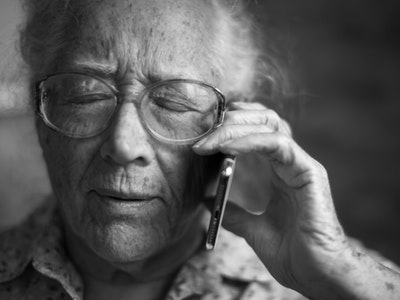Legal Formalities Involved in Making a Will in Singapore

You should consider writing a will if there are significant changes in your life circumstances or wishes. Examples include when you get married, divorced, have children, migrate, acquire new assets, or experience a change in your financial situation. You can also update your will if your beneficiaries or executors change. It is recommended to review your will periodically and make updates as needed.
Before writing your own will, knowing the proper way to do it is essential. This helps ensure that your will follows the legal requirements of your state so that it can be enforced, preventing any unnecessary efforts from going to waste. Hence, it is important to remember specific factors that make a will legally binding – here in Singapore.
Writing a Legally Binding Will
To write a legally binding will, certain formalities must be observed. These include:
- The will must be in writing.
- The testator must be at least 21 years old.
- The testator must sign the will at the end.
- The testator needs two witnesses who will sign the will during the signing.
- The witnesses cannot be the beneficiaries or their spouses.
If the testator is unable to sign the will, another person may sign it on their behalf, but only in their presence. In this case, additional witnesses, including beneficiaries, may also sign the will. Ideally, those who have no stake would be great candidates for witnesses.
What Should I Put in My Will?
A will should include the following:
- A list of the testator’s essential assets, excluding shared assets like joint bank accounts or real estate.
- A list of liabilities and instructions for debt repayment.
- The names of beneficiaries and the assets they will receive.
- Guardians for minor beneficiaries.
- Specific amounts for each beneficiary.
- The executor’s name and potential beneficiaries can serve in this role.
- The names of lawyers, specialists, or advisors involved in the will process.
- A clause for revoking any prior wills.
- A clause for distributing remaining assets, such as when a beneficiary predeceases the testator.
A will can be revoked due to marriage, a written revocation, or its destruction. Regularly review the will to reflect current intentions for asset distribution and administration.
What About My CPF Savings?
CPF savings cannot be included in a will or considered part of the testator’s estate. They are also protected from claims by creditors. To allocate CPF savings according to your wishes, a CPF nomination is necessary. A CPF nomination allows CPF members to choose who will receive their CPF savings and what amount upon passing.
If there is no nomination, the Public Trustee’s Office will distribute the savings according to the Intestate Succession Act or the Inheritance Certificate for Muslims. The PTO charges administration fees for distributing CPF savings to family members.
Do I Need a Lawyer to Write My Will?
Technically, you don’t need a lawyer to write your will. Nevertheless, it is highly recommended that you get one. The lawyer will ensure your will is valid, enforceable, and meets all legal requirements is a relief.
Hiring a lawyer to draft your will is relatively inexpensive. The basic cost for an estate to have a lawyer complete the will typically ranges from $100 to $150, similar to the cost of a pre-made form that includes consultation and final review. However, if the circumstances of your assets are more complex, the service fee may be higher, with costs reaching up to $5,000 for estates with significant assets.
It’s important to note that when you pay for a lawyer, you’re paying for the will and the benefits of having a qualified expert. If a lawyer drafts the will, they may keep a copy for safekeeping. This gives peace of mind to the willmaker’s family.
In a case the lawyer who drafted the will cannot be identified, there are two options. First, check with the Wills Registry to see if they have any information. Place a notice in the Law Gazette requesting the lawyer to contact the person seeking information about the will. Once the lawyer sees the notice, they can get in touch with the person who placed the notice. A fee applies for this process, which may cost you about $214.
What Happens Post-will Execution
Once your will has been executed, you should keep it private, except for sharing it with your appointed executor. You can deposit information about your will to the Wills Registry online using your SingPass login details. The information you can provide includes the following:
- Your details.
- The date the will was made.
- Information about the person who drafted the will.
- Details of the will’s location.
The executor can be anyone or a professional who specialises in wills. They apply for probate and administer the estate, settling debts and distributing assets to beneficiaries according to the will. It’s vital that you consult with your chosen executor before appointing them. Remember, the executor is responsible for executing the will, as the executors also have a right to refuse it.
If anyone questions the will’s validity, it can be contested, and the court may declare part or all of it invalid. To ensure your will follows the Wills Act provisions, seeking legal advice when drafting it is important.
Advantages of Registering Your Will
Sometimes people overlook the significance of registering their will. Here are several solid reasons why you might want to register yours:
- When you register your will, a copy is kept safe in the registry office.
- If someone tries to tamper with the original will, the copy can be used to compare and find out which one is real.
- If the original gets lost or damaged, you can get a certified copy from the registry office.
- If your will is about a property you don’t fully own yet, registering it can make it easier to change the names on the property later.
- If you’re sick and can’t go to the registry office, the registrar can come to your home to help you.
If you can’t find your will, don’t worry. If you registered it with the Wills Registry, your family could contact them for help. They keep records of when and where the will was made and by whom. They don’t keep a copy of the actual will but store this information for 120 years from the testator’s birth. If your deceased loved one registered their will, you could get this information from the Public Trustee Office for $10.
Why Writing a New Will is Better Than Rewriting an Existing One
When it comes to your asset distribution, there will be additional documents to look through alongside the rewritten will.
A codicil is an additional document you can use to change your will. It attaches to the original will and outlines the changes you want to make. However, note that your will can become invalid or contested if the changes do not comply with Singapore law. Another risk of using a codicil is that it may get misplaced with the original will.
In this process, confusion or misplacement could very well happen. As a consequence, it could take even more time to clear up the mistake. Therefore, writing a new will is better to avoid this scenario. If you’re getting a new will, remember that the previous one should be destroyed either by being shredded or torn away. Plus, it would be best to inform your executors and family members of the current one.
We Can Help Make It Better
3E Accounting is here for you. We understand that writing your will could be an overwhelming process. Our team of professionals are well-equipped to help you with just that. We will assist you in the will-writing process step-by-step, regardless of how massive or modest your assets are. Knowing how they will be distributed beyond your days, you can have peace of mind. Contact us, and we’ll get you started on your will right away!










